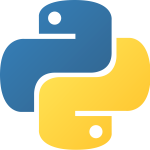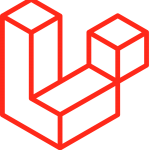Hire remote Django developers that you can trust
Hire Django developers from a unique network of 50,000+ pre-vetted offshore talents from Europe and Latin America, looking for a full-time contract. YouTeam developers stand apart for their ability to think like product managers and act like software architects. We also manage everything, so there’s zero overhead for your company.
Hire developers
193 best Django developers for hire on YouTeam in November 2024

Marcelo
Senior Full-Stack Engineer

Yurii
Full-Stack Engineer

Dmitrii
Middle Python Engineer

Sergey
Senior Python Developer

Diego
Full-Stack Developer

Serhii
Python Developer

Diego
Senior Software Engineer

Evgeniy
Python Developer

Lázaro
Software Engineer

Alberto
Software Developer
Start hiring to
see all talent
Hire
developers

Best Developer
Software Developer
Trusted by Fortune 500 companies and Y Combinator startups
Why hire Django developers with YouTeam
 48-hour personalized matching
YouTeam handpicks the best-matched candidates.
48-hour personalized matching
YouTeam handpicks the best-matched candidates.
 Zero overhead
Locally-compliant contracts and billing
Zero overhead
Locally-compliant contracts and billing
 Dedicated white-glove support
Dedicated white-glove support





How to hire Django developers with YouTeam
Share your requirements Set up a quick call with one of our Matching Experts — your dedicated contact at YouTeam.
Undergo Personalized Matching Your Matching Expert curates a candidate list, conducts pre-interviews, and ensures a perfect match for your needs—covering developers' skills, tech stack preferences, interests, and personality.
Meet the right candidates Review a list of candidates screened specifically for your request and pick the best for the interview stage. Average interview-to-hire ratio on YouTeam platforms: 1.75.
Hire and work with confidence YouTeam automates contract signing and invoicing through its secure system. Your dedicated Matching Expert stays with you throughout the collaboration with contractors.


Find developers skilled in related technology
More technologies
Read about Django on our blog
 10 Django Developer Interview Questions to Ask (+Expected Answers)
10 Django Developer Interview Questions to Ask (+Expected Answers)
Svetlana Shevchuk
 Should you use Ruby on Rails or Django? Explained by an expert software developer.
Should you use Ruby on Rails or Django? Explained by an expert software developer.
Tristan Senycia

About Django
- What you need to know about Django
- What is Django used for?
- Essential tools for Django developers
- What is the role of a Django developer?
- Django developers' experience levels
- Key skills to look for when hiring Django Developers
- Tasks and responsibilities of Django developers
- Hiring Django developers: freelancers, in-house engineers, or outsourced developers
- How to write a Django developer job description?
- Hard skills assessment questions for experienced Django developers
Django is a high-level, open-source web framework for Python that enables developers to create secure and maintainable websites efficiently. Designed by experienced engineers, Django allows developers to implement features quickly without needing to write code from scratch. Its open-source nature fosters a large community, providing extensive documentation and making it one of the most popular web frameworks.
Django is favored for web development due to its:
- Security: The framework minimizes common development mistakes and provides built-in protections against vulnerabilities such as clickjacking, cross-site request forgery (CSRF), and SQL injection.
- Comprehensive Functionality: Django includes built-in features like an admin panel, authentication system, and ORM (Object-Relational Mapping), enabling developers to build robust applications efficiently and ensuring seamless integration of components.
- Portability: Being written in Python, Django is compatible with multiple operating systems, including Linux, Windows, and macOS, making it versatile for various deployment environments.
Django is a powerful web framework designed to help developers build secure and maintainable web applications efficiently. Its robust features and architecture support a variety of use cases, including:
1. Web Application Development: Django provides a structured framework with built-in components, enabling developers to create complex web applications with minimal code. Its “batteries-included” philosophy means that it includes essential tools for rapid development.
2. Content Management Systems (CMS): Django is often used to build content-driven websites and applications, leveraging its admin interface and database management capabilities to streamline content creation and organization.
3. E-commerce Platforms: With its focus on security and scalability, Django is an excellent choice for developing e-commerce sites, allowing for features like product catalogs, shopping carts, and secure payment processing.
4. APIs and Microservices: Django can be used to develop RESTful APIs and microservices, thanks to its flexibility and the Django REST framework, which simplifies API development.
5. Scalable Development: Django’s architecture supports the smooth updating and scaling of applications. It allows developers to easily add new features or modify existing ones, making it a suitable choice for projects expected to grow over time.
Django developers have access to a variety of tools that enhance their productivity and streamline the development process. Here are some of the most popular and useful tools in the Django ecosystem:
1. Django REST Framework: This powerful toolkit seamlessly integrates with Django’s standard models to create robust and flexible REST APIs. It is widely used for building web APIs and comes equipped with features such as authentication, serialization, and pagination, all designed to simplify API development.
2. Django Debug Toolbar: A vital resource for developers, this toolbar provides in-depth debug information about requests and the overall state of your Django application. It helps identify performance bottlenecks, analyze SQL queries, and troubleshoot other issues during development.
3. Sentry: An essential monitoring tool for production environments, Sentry automatically tracks errors, bugs, and crashes in your Django application. It provides detailed reports and notifications, allowing you to resolve issues quickly and maintain application stability.
4. Django Allauth: This popular package simplifies user authentication, registration, and account management. It supports social account authentication (like Google and Facebook) and integrates seamlessly with Django’s built-in authentication system.
5. Django-baton: A modern and visually appealing admin interface built on Bootstrap 5, Django-baton enhances user experience with responsive design and extensive customization options for the Django admin panel.
6. Django-environ: This tool helps manage environment variables in Django projects, simplifying configuration management. By keeping sensitive information like database credentials out of the codebase and storing them securely in environment variables, Django-environ enhances security.
7. Celery with Django: Celery is a powerful asynchronous task manager that integrates well with Django. It’s commonly used to handle background jobs such as sending emails, processing large datasets, or running scheduled tasks, freeing up the main application to remain responsive.
8. Django Storages: A collection of custom storage backends, Django Storages integrates with popular cloud services like Amazon S3 and Google Cloud Storage. It simplifies file uploads and media storage in Django, making it especially useful for large-scale projects.
A Django developer is an IT professional focused on building web applications using the Django framework, which is based on Python. Their primary responsibilities include designing, developing, and maintaining robust applications, implementing features, and ensuring optimal performance. Django developers often work collaboratively with other team members, including front-end developers and UX/UI designers, to create seamless user experiences.
Django expertise can be found among both specialized Python developers and full-stack developers, as Django is one of the most popular frameworks for web development. Their knowledge not only enhances their ability to create dynamic web applications but also contributes to the overall efficiency and scalability of software projects.
Django developers are typically categorized into three levels of seniority: junior, middle, and senior engineers.
Junior Django Developers
Junior Django developers are often entry-level professionals with up to two years of experience. They possess a foundational understanding of the Python programming language, the Django framework, and front-end technologies such as HTML, CSS, and JavaScript. In this role, they contribute to the development process by working on basic tasks under the supervision of more experienced developers. This mentorship provides them with opportunities to learn and grow their skills within a team environment.
Middle Django Developers
Middle Django developers typically have between three to five years of experience. They possess a more advanced understanding of the Django framework and may be familiar with additional frameworks such as Flask or Dash. These developers often have knowledge of multiple programming languages and their associated libraries, enabling them to design and implement robust databases. Middle developers are capable of providing their own software solutions and are entrusted with more complex tasks.
Senior Django Developers
Senior Django developers boast over five years of experience and possess in-depth expertise in the Django framework. They are proficient in multiple programming languages and their respective frameworks and can integrate databases into cohesive systems. Beyond technical skills, senior developers often exhibit strong communication and leadership abilities, frequently taking on the role of team lead and mentoring junior developers. Their extensive experience allows them to guide project direction and make strategic technical decisions.
When hiring Django developers, you can identify technical and soft skills that will allow them to contribute effectively to your project. Here are the key skills to consider:
1. Django ORM (Object-Relational Mapping)
Developers should have a strong understanding of relational databases (e.g., PostgreSQL, MySQL) and be skilled in defining models, managing migrations, and optimizing queries using Django ORM.
2. User Authentication & Security
Proficiency in implementing secure authentication methods, such as OAuth2 and JWT, along with knowledge of Django’s security features to protect against vulnerabilities like XSS and SQL injection.
3. Web APIs Development
Experience with building robust APIs using Django REST Framework (DRF), including designing RESTful services, serializers, and implementing pagination and authentication.
4. Python Ecosystem
A strong foundation in Python programming, along with familiarity with libraries that complement Django, such as NumPy and Pandas for data processing. Knowledge of testing frameworks like PyTest and TDD practices is also essential.
5. Front-End Technologies
Familiarity with HTML, CSS, and JavaScript can aid collaboration with front-end developers, enhancing the user interface.
6. Deployment and DevOps Knowledge
Experience deploying Django applications on cloud platforms (e.g., AWS, Google Cloud) and proficiency in version control systems like Git are important.
7. Soft Skills
Strong analytical and communication skills are crucial for effective collaboration and addressing technical challenges. A willingness to learn new tools and best practices is essential for keeping pace with the evolving tech landscape.
Django developers are responsible for a wide range of tasks that include:
- Application Development: Design and implement scalable web applications using the Django framework, ensuring clean and efficient code.
- Feature Implementation: Collaborate with stakeholders to understand requirements and develop unique features, enhancing the overall functionality of the application.
- Database Management: Create and manage databases using Django’s ORM, ensuring data integrity and optimal performance.
- Testing and Debugging: Conduct unit and integration testing to identify bugs and ensure the application runs smoothly, addressing issues promptly.
- API Development: Build and maintain RESTful APIs using Django REST Framework to facilitate communication between front-end and back-end services.
- Security Measures: Implement security best practices to protect applications from vulnerabilities and ensure user data is safeguarded.
- Documentation: Maintain clear documentation of code and development processes to aid collaboration and onboarding of new team members.
When hiring Django developers, there are three common models to choose from: freelance, in-house, and outsourcing.
Freelance Django Developer
A freelance Django developer is ideal for short-term projects or simple tasks that can be quickly delegated to a third party. This model allows for fast hiring, often enabling the developer to start the next day. Freelancers are typically more affordable, as their hourly rates are lower compared to other hiring options. However, the quality may vary, and it can be challenging to find a freelancer whose skills and experience perfectly align with your project needs. Additionally, freelance work can be unreliable, as freelancers often juggle multiple projects and may prioritize others over yours.
In-House Django Developer
Hiring a Django developer in-house is the best option when you need dedicated, long-term support, especially during core development phases. In-house developers are more invested in the company and motivated to deliver high-quality products since they are part of the business. However, this model is the most expensive, as it includes not only salaries but also the cost of equipment, bonuses, and taxes.
Outsourced Django Developer
Outsourcing offers two models: full outsourcing and staff augmentation. Full outsourcing is ideal if you have a project idea and want a dedicated team of developers, QAs, designers, and a project manager to bring it to life. Many outsourcing agencies specialize in specific industries and can provide skilled teams with relevant expertise. On the other hand, staff augmentation allows you to hire one or several engineers to expand your existing team quickly. It’s a cost-effective solution, as you only pay for the hours worked. Both models offer access to a global talent pool, often at lower costs, since outsourced developers are usually located in regions with a lower cost of living.
Writing a clear and detailed Django developer job description is key to attracting the right candidates. Follow these essential elements to craft an effective job listing:
1. Job Title: Be specific about the role. For example, “Senior Django Developer” or “Full-Stack Django Developer.”
2. Job Summary: Provide a brief overview of the role and your company. Highlight what the Django developer will work on, such as web applications, APIs, or specific projects.
3. Responsibilities:
- Developing and maintaining web applications using the Django framework.
- Integrating front-end components with Django back-end logic.
- Implementing secure and scalable APIs.
- Collaborating with designers and other developers to create user-friendly interfaces.
- Writing clean, efficient, and well-documented code.
- Debugging and optimizing applications for performance.
4. Required Skills:
- Expertise in Python and Django.
- Strong understanding of Django ORM and relational databases.
- Experience with front-end technologies (HTML, CSS, JavaScript).
- Familiarity with Django REST Framework and building APIs.
- Knowledge of version control systems, such as Git.
5. Preferred Qualifications: Mention any additional qualifications, such as experience with cloud platforms (AWS, GCP), knowledge of other frameworks, or proficiency in DevOps tools.
6. Work Environment & Benefits: Describe the company culture, work environment (remote, hybrid, on-site), and any benefits (flexible hours, paid time off, professional development opportunities).
To evaluate experienced Django developers, focus on their expertise with the Django framework and related technologies. Here are key technical questions to ask:
1. What are Django signals, and how do you use them?
- Assess the candidate’s understanding of Django’s decoupled communication between different parts of the application and how they implement custom signals.
2. Explain the difference between Django’s ORM and raw SQL queries. When would you use each?
- This question gauges the candidate’s understanding of Django’s ORM and their ability to work with both high-level ORM and low-level raw SQL queries.
3. How would you optimize a Django application for performance?
- Expect answers around caching (memcached, Redis), database optimization, query reduction (e.g., using select_related and prefetch_related), and scaling techniques.
4. Can you explain how Django handles user authentication and authorization?
- This question tests knowledge of Django’s built-in authentication system, including user models, permissions, and custom authentication mechanisms.
5. How do you manage static and media files in Django for both development and production environments?
- You’re looking for insights into handling static files via collectstatic, configuring media files, and using storage backends like Amazon S3 for production.
6. What are Django’s class-based views (CBVs), and how do they differ from function-based views (FBVs)?
- The candidate should explain the benefits of both approaches, when to use CBVs, and how to extend or customize them effectively.
7. How would you implement and secure a RESTful API using Django REST Framework?
- This question examines their knowledge of Django REST Framework (DRF), including serialization, viewsets, routers, and ensuring secure API access through authentication and throttling.
8. What is middleware in Django, and can you give an example of when you would create a custom middleware?
- Tests the developer’s understanding of Django’s request/response cycle and their experience in customizing or creating middleware for specific needs.
9. How do you handle database migrations in Django, and what are some challenges you’ve encountered?
- This question will reveal the candidate’s experience with Django’s migration system, handling schema changes, and resolving migration conflicts.
10. Can you describe a challenging Django project you’ve worked on and how you solved a major issue?
- This open-ended question helps assess problem-solving skills, creativity, and practical experience with large or complex Django projects.
These questions will help you assess the developer’s expertise and ensure they can handle advanced Django tasks.
FAQ about Hiring Django developer
Why choose YouTeam to hire Django developers?
YouTeam offers access to a highly qualified pool of Django developers, helping you scale your team quickly. Each developer is thoroughly vetted, ensuring their skills, experience, and reliability. With partnerships across 500+ development agencies and over 50,000 developers, you can receive qualified candidates within 48 hours, making it a fast and reliable solution for your hiring needs.
How does YouTeam vet Django software developers?
YouTeam follows a multi-stage vetting process. First, developers are sourced from trusted development agencies, ensuring they meet the necessary skill and experience requirements. Pre-screened candidates are then forwarded to clients for further interviews, allowing them to select the best fit based on specific project needs.
How much does it cost to hire the best Django developers through YouTeam?
The cost of hiring Django developers on YouTeam varies based on factors like expertise, location, and skills. On average, a Django developer through YouTeam charges around $50 per hour, though rates can fluctuate depending on specific project requirements.
How quickly can you hire with YouTeam?
With YouTeam, you can hire developers faster than traditional methods. Here’s why:
1. Shortlist in 48 hours: Powered by our AI Matchmaker and human experts, we deliver a tailored shortlist of vetted candidates within just 48 hours.
2. Larger talent pool: As a marketplace, YouTeam offers access to a broader range of developers from hundreds of partner agencies, giving you more options than typical outsourcing agencies.
3. Seamless process: From the moment you request a call, our Matching Experts handle the rest, ensuring you quickly receive top-quality candidates who match your precise requirements.
With YouTeam, our clients have been able to build development teams within just a few weeks, not months.
What is the no-risk trial period for YouTeam developers?
• 1-Month Trial: You can terminate the engagement at any time during the first month.
• Free Replacements: If you’d like to replace a contractor, we’ll do it within two weeks, free of charge.
You can learn more by reading our Money-Back Guarantee.
How is YouTeam different from freelance portals for hiring Django developers?
Unlike freelance platforms, YouTeam connects you with developers from trusted software development agencies, not freelancers. This ensures that developers have the necessary technical and soft skills, along with relevant experience. If a developer needs to be replaced unexpectedly, YouTeam can quickly provide a substitute of equal skill to avoid project delays.
How do Django developer salaries differ, and why?
Django developer salaries vary widely depending on location, experience, and demand. In the United States, the average annual salary for a Django developer is around $120K, with salaries in major tech hubs like San Francisco and New York often exceeding $140K due to the high cost of living and demand for specialized talent.
In contrast, Django developers in Latin America typically earn between $45K and $75K per year, while in Eastern Europe, salaries range from $50K to $80K annually. These regional differences allow companies to access skilled developers offshore at a fraction of the cost compared to hiring in the US.
Reviews
“It's just much more convenient to find a small team. I talk to one person, get 5 hand-picked CVs, interview candidates, hire the best ones – and I’m done!”
“Every time YouTeam sends me a list of potential developers, I am confident that I can interview pretty much anybody and they will be a good candidate.”
“The decision to use YouTeam was made by comparing them directly to the other candidates. As soon as I started talking to them, YouTeam adopted a hands-on approach. Time-wise, YouTeam also performed well.”
“We will definitely continue with them in the future. I’m so happy with their work that I’ve recommended them to my other company as well. There were no issues, it was really good. I gave a very loose brief, and the developer who worked for me had enough initiative to tighten it up by asking relevant questions. There was no messing around—it was done really well, with good, clean code.”
“YouTeam was very quick and responsive. I was presented with great candidates in just days, which was fantastic for me because we were looking to move fast. They had experience working on similar projects to exactly what we needed.”
“We wanted to boost our capacity for a period of six to twelve months. I decided to get a shot with YouTeam is that in any other place I can't say that I'm looking for a team of 5 developers with the possibility to scale. Now I returned to them again - this time for the confidence. If somebody is on the YouTube platform, you know that they've met a certain threshold of customer satisfaction, they've got a history of successful work elsewhere.”









